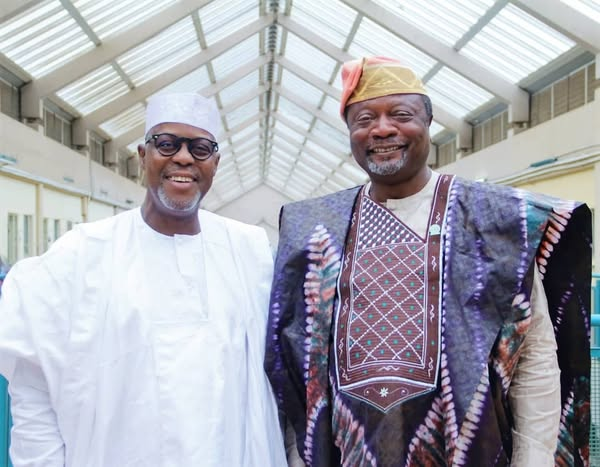
Reported by: Ime Richard Aondofa | Edited by: Henry Owen
Abuja — The Public Complaints Commission (PCC) has begun fresh moves to modernize its operations and improve service delivery to Nigerians through a strategic collaboration with the National Centre for Technology Management (NACETEM). The development came to light on Monday when the Honourable Chief Commissioner of PCC, Hon. Bashir Abubakar, MFR, paid a working visit to the Director-General of NACETEM, Dr. Olushola Odusanya, at the Centre’s headquarters in Abuja.
During the meeting, Hon. Abubakar underscored the pivotal role NACETEM plays in advancing science, technology, and innovation in Nigeria, stressing that the Commission was eager to leverage these capabilities to improve its internal processes and its interface with the public.
“The Commission aims to enhance its service delivery, improve administrative processes, and increase public engagement through technology-driven solutions,” the Chief Ombudsman said.
Abubakar acknowledged that the PCC is confronted by challenges such as outdated data systems, inadequate digital engagement platforms, and slow complaint-handling processes. He explained that collaboration with NACETEM will help tackle these problems head-on.
“Our citizens deserve a faster and more transparent response to their complaints,” he added. “Technology is the bridge that will connect the Commission to the expectations of Nigerians in the 21st century.”
For his part, NACETEM Director-General, Dr. Olushola Odusanya, warmly welcomed the PCC delegation and outlined the Centre’s mandate and achievements. He emphasized that NACETEM is designed to ensure government institutions use up-to-date data for informed decision-making, provide training in science, technology, and innovation (STI), and strengthen the skills of government officials in data-driven governance.
Highlighting the importance of data in modern administration, Dr. Odusanya cautioned that public institutions that fail to build strong data management capacities risk lagging behind in a rapidly evolving information age.
“Data will be one of the most valuable resources in the future,” he said. “Institutions that ignore data management will find themselves struggling to cope with the demands of a data-driven world.”
He applauded the PCC’s initiative, noting that such foresight is what distinguishes agencies that thrive from those that become obsolete.
“This visit is a bold and timely move,” Odusanya said. “We at NACETEM are ready to support the PCC with cutting-edge training programmes, research insights, and practical digital solutions that will strengthen its capacity and raise the quality of its service delivery.”
The DG further expressed NACETEM’s readiness to partner with the Commission by offering tailored training programmes, developing digital solutions, and integrating STI research outcomes into PCC’s workflows. He noted that such reforms would not only empower PCC staff but also boost citizens’ confidence in the Commission’s ability to deliver effective services.
The session also featured a detailed PowerPoint presentation by NACETEM experts, who outlined several training opportunities available for PCC staff. These include modules on big data management, digital administration systems, and innovation management for public institutions. They encouraged the Commission to submit a formal proposal in order to kick-start the collaboration process.
A robust interactive session followed, during which PCC officials asked questions and sought clarifications on how NACETEM’s programmes could be adapted to address the Commission’s specific challenges. Both parties agreed to establish a joint working group to outline next steps and draw up a framework for collaboration.
Speaking after the session, Hon. Bashir Abubakar expressed optimism that the partnership would mark a turning point in the Commission’s operations.
“This is not just a courtesy call. It is a deliberate step towards building a modern PCC that Nigerians can trust. We will work closely with NACETEM to ensure our systems reflect the best practices in technology and data management,” he affirmed.
As Nigeria continues to grapple with governance challenges, the PCC’s move to embrace technology through NACETEM is seen as part of broader efforts to reform public service delivery and build trust between citizens and state institutions. If successfully implemented, the collaboration could set a new benchmark for innovation-driven public sector performance in the country.
📩 Stone Reporters News
🌍 stonereportersnews.com | ✉️ info@stonereportersnews.com
📘 Facebook: Stone Reporters | 🐦 X (Twitter): @StoneReportNews


Add comment
Comments